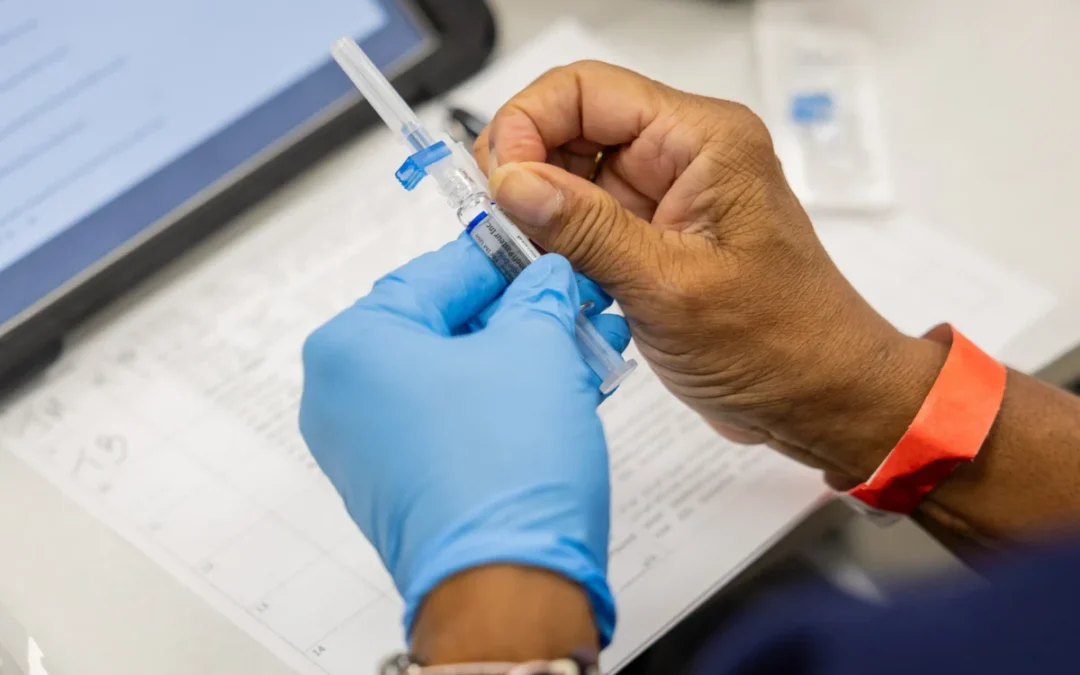
A bill approved by Michigan lawmakers will repeal a state law that has shielded pharmaceutical companies from lawsuits stemming from the safety and efficacy of their products.
MICHIGAN—A state law that prevents Michiganders from suing pharmaceutical companies over potentially dangerous or defective drugs is set to be erased from the books in Michigan.
The state Senate last week voted to approve legislation to eliminate a provision in state law that makes manufacturers or sellers of drugs immune from product liability under certain situations—which effectively prevents Michiganders from holding them accountable in court.
Michigan is the only state in the nation with laws that specifically protect Big Pharma from product liability. State lawmakers said repealing the provision will force more companies to accept responsibility when they “knowingly defraud and harm” the public.
“Restoring accountability for drug companies has been a goal of mine throughout my time in the Legislature,” sponsoring Sen. Jeff Irwin (D-Ann Arbor) said in a statement last week. “By repealing our state’s immunity law for the drug industry, SB 410 will restore accountability to drug manufacturers and vital access to justice for our state and its people.”
Currently, drug companies are immune from product liability in Michigan as long as their products are properly labeled and approved by the federal Food and Drug Administration, and if the company didn’t fraudulently obtain approval by bribing someone or lying about their drugs.
Michigan Attorney General Dana Nessel said the limitations have hindered her ability to investigate drug companies that contribute to the opioid epidemic or price gouge for insulin, as well as limited the recovery of taxpayer dollars paid out from the Medicaid program due to fraud.
“While my Department was ultimately successful in litigating claims against a host of opioid defendants, the existence of this unique provision greatly complicated the approach,” Nessel said in a statement. “I applaud the legislature for finally addressing this one-of-a-kind bill that placed protections for large corporations over the safety of Michigan residents.”
In 2011, Attorney General Mike Cox’s lawsuit against Merck for $20 million was reportedly dismissed under immunity protection. In 2020, a court also dismissed claims of negligence and public nuisance against opioid distributors, again citing immunity protection in state law. Local governments have faced similar barriers in their litigation against pharmaceutical companies.
According to a legislative analysis, the existing state law has also prevented Michiganders (including Nessel) from participating in national class-action lawsuits and from filing complaints against pharmaceutical companies. Under the bill, legal recourse would become an option—including the ability to recover damages if faulty drugs lead to injuries or death.
The bill is now headed to Gov. Gretchen Whitmer’s desk to be signed into law.
“For too long, residents and loved ones who were harmed by the very medicines that were supposed to help them have had no legal recourse, even as courts have awarded millions of dollars to residents and communities everywhere else around the nation,” Sen. Sue Shink (D-Northfield Twp.) said in a statement after the bill was passed. “Today’s action, and strong bipartisanship behind it, are a major win for Michigan and our Senate majority for the people.”
READ MORE: Dems to stop Big Pharma from gouging Michiganders for drugs
For the latest Michigan news, follow The ‘Gander on Twitter.
Follow Political Correspondent Kyle Kaminski here.
Support Our Cause
Thank you for taking the time to read our work. Before you go, we hope you'll consider supporting our values-driven journalism, which has always strived to make clear what's really at stake for Michiganders and our future.
Since day one, our goal here at The 'Gander has always been to empower people across the state with fact-based news and information. We believe that when people are armed with knowledge about what's happening in their local, state, and federal governments—including who is working on their behalf and who is actively trying to block efforts aimed at improving the daily lives of Michigan families—they will be inspired to become civically engaged.


A new car vs. health insurance? Average family job-based coverage hits $27K
By Phil Galewitz, KFF Health News With the federal shutdown entering its fourth week, spurred by a stalemate over the cost of health insurance for...

Fighting a health insurance denial? Here are 7 tips to help
By: Lauren Sausser When Sally Nix found out that her health insurance company wouldn’t pay for an expensive, doctor-recommended treatment to ease...

It’s almost flu season. Should you still get a shot, and will insurance cover it?
Madison Czopek, PolitiFact August 18, 2025 For parents of school-aged children, the fall to-do list can seem ever-growing. Buy school supplies. Fill...

Opinion: Health care is at risk as Grad PLUS loans face the chopping block
The ‘One Big, Beautiful Bill Act’ strips critical funding from medical students and threatens care in rural and underserved communities. We never...

Macomb County households will start losing money this year under Trump’s new spending law. Here’s how much—and who let it happen
Families in Michigan’s 10th Congressional District will shoulder over $500 million in lost funding, while billionaires cash in. In the neighborhoods...





